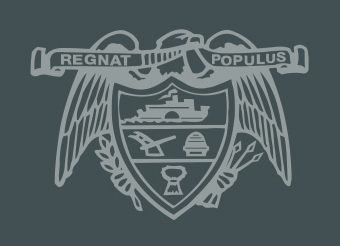
Nine months after covid-19 was identified and began to cause tragic and unnecessary illness and death, the pandemic continues to cause misery all over the world. As with so many other humanitarian catastrophes, the already-impoverished are most likely to suffer the most--from both hunger and the impact of the illness.
Countries with fewer resources face daunting challenges of preparing for hospitals at over-capacity, and of securing the medical equipment, PPE, and other necessities to save lives and stem the spread. The world watched in horror as state-of-the-art hospitals in the largest city in the richest country on Earth were overwhelmed by the pandemic last spring, and as similar scenes played out in Italy, Ecuador, and elsewhere.
Imagine the prospects facing health-care professionals and emergency planners in countries with just a fraction of the budgets available to wealthy countries like the U.S.
Even once the pandemic fades, developing countries are threatened by prospects of ongoing and grave economic recessions. While the economic outlook for the world is not rosy, it is especially dark for low- and middle-income countries that are not able, like well-off economies like the U.S. and the European Union, to print internationally traded currencies in order to finance emergency spending, or to provide stimulus to keep above water.
What do such nations typically do in times like this? They turn to the International Monetary Fund (IMF).
The IMF has reserve assets it makes available in just these kinds of situations. In 2009, the IMF allocated hundreds of billions of these assets, called Special Drawing Rights (SDRs), to all its member countries. This provided a lifeline to developing nations as they braced for the impact of the global recession.
A major issuance of SDRs right now also could help struggling farmers, manufacturers, and many other people right here in Arkansas who are facing their own challenges brought on by the pandemic's economic fallout.
How is this? The answer is that in this global economy, Arkansas' exports are being hit by U.S. trading partners' diminished ability to import rice, chicken, airplane and train parts, and various other products from Arkansas. If the IMF helps out developing countries, it will be helping the U.S. economy out as well.
Even better, there would be no cost to U.S. taxpayers for the IMF to allocate even $2 trillion or $3 trillion in SDRs. As the Fund's reserve assets, SDRs are based on a basket of currencies, and don't require taking U.S. dollars to back them.
There is so much good that countries around the world could do with these SDRs, which they would be able to trade for other currencies. The SDRs are apportioned according to each country's IMF quota; Mexico, for example, would receive over $52 billion if the IMF allocated $2 trillion in SDRs to all its members. These funds will allow Mexico to better respond to the urgent health needs brought on by the covid pandemic as well as to help ensure that the Mexican economy does not needlessly suffer a prolonged recession, that millions more people in Mexico are not pushed over the poverty line, and that hunger does not affect many thousands more families.
It would be tragic and irresponsible, as well as a betrayal of our global neighbors, if we allowed another 265 million more people around the world to become food insecure, as the UN World Food Program projects will happen this year.
When there is a tool available to respond quickly and effectively to the economic threat bearing down on people in developing countries, we have a moral responsibility to use that tool. It is up to the richer nations to make sure the IMF allocates trillions in SDRs.
There are members of Congress in both houses who have introduced legislation--which has already passed in the House of Representatives and which in the Senate goes by the name of the Support for Global Financial Institution Pandemic Response Act, S. 4139--to ensure that this happens.
This deserves support and we hope our Senators John Boozman and Tom Cotton will join them.
--–––––v–––––--
Anthony B. Taylor is bishop of the Catholic Diocese of Little Rock.
"feed" - Google News
September 28, 2020 at 06:35PM
https://ift.tt/36hQYIr
Feed the world - Northwest Arkansas Democrat-Gazette
"feed" - Google News
https://ift.tt/2z3xEQN
https://ift.tt/2yko4c8
Bagikan Berita Ini














0 Response to "Feed the world - Northwest Arkansas Democrat-Gazette"
Post a Comment